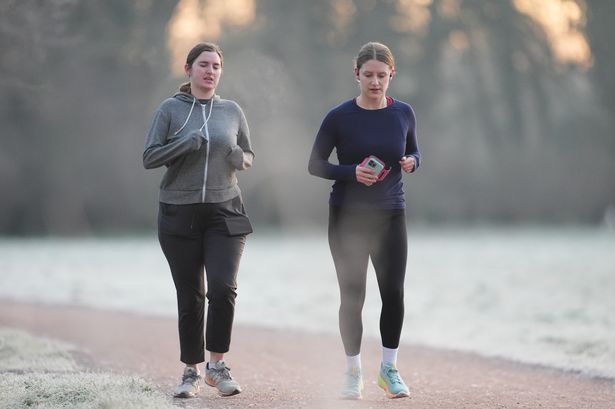A recent study published in the British Journal of Sports Medicine highlights the health benefits of engaging in short bursts of physical activity, referred to as “exercise snacks.” Researchers found that even brief periods of exercise, lasting just two minutes, can enhance respiratory fitness and improve overall health. This approach may be particularly beneficial for individuals who struggle with time constraints or motivation to maintain a regular exercise regimen.
The study, involving 414 participants, predominantly women (69%), assessed the impact of incorporating structured, short-duration bouts of physical activity into daily routines. These “snacktivity” sessions, which include activities like stair climbing and bodyweight exercises, encourage individuals to accumulate these short bursts throughout the day. According to the research team, which includes experts from the University of Oviedo in Spain and the Danish Centre for Motivation and Behaviour Science, “Exercise snacks are intentionally structured, short duration bouts of physical activity that are deliberately incorporated into daily routines.”
An analysis of 11 randomised controlled trials demonstrated that these short exercise sessions significantly improved cardiorespiratory fitness among adults. While the snacks did not appear to impact body composition, blood pressure, or cholesterol levels, they still represent a valuable addition to physical activity strategies, especially for those who are physically inactive.
The findings indicate that achieving even half of the recommended physical activity guidelines—between 150 to 300 minutes of moderate intensity or 75 to 150 minutes of vigorous intensity activity each week—can lead to substantial mental health benefits. The researchers noted an 18% reduction in the risk of depression associated with reaching these activity levels.
The convenience of exercise snacks may resonate with people who believe they are too busy to engage in traditional exercise routines. The study points out that short, flexible exercise bouts are easier to integrate into daily life, potentially enhancing adherence to regular physical activity.
Moderate activities include brisk walking at speeds of 4 mph or faster, heavy cleaning tasks like washing windows or mopping, and cycling at speeds of 10 mph to 12 mph. Vigorous activities comprise hiking, jogging at speeds of 6 mph or faster, shovelling, fast cycling, and sports such as basketball or tennis.
Overall, the research underscores the potential of low-volume, accessible physical activity strategies to produce significant health benefits, particularly among those who have previously been inactive. The concept of exercise snacks offers a promising solution to improve fitness levels and overall well-being in a time-efficient manner.
